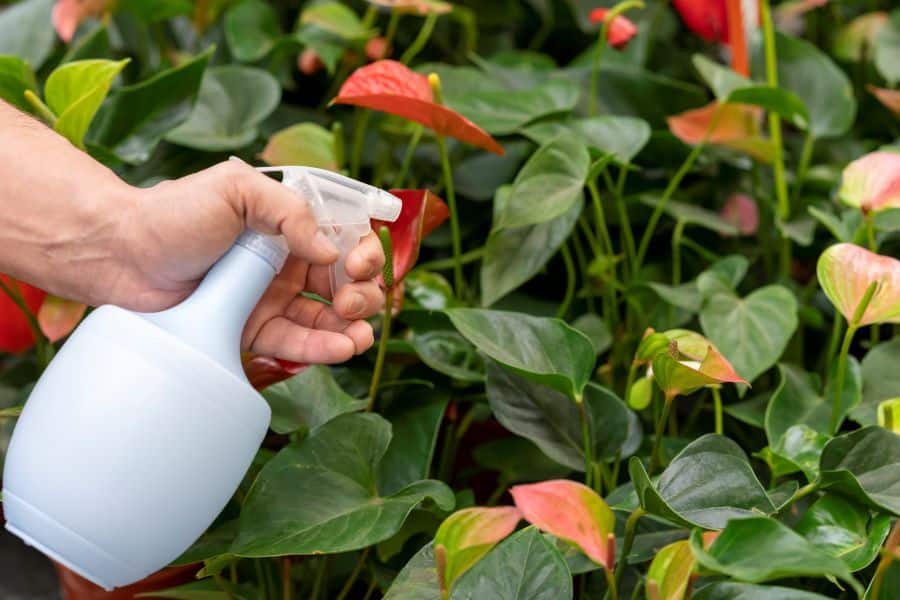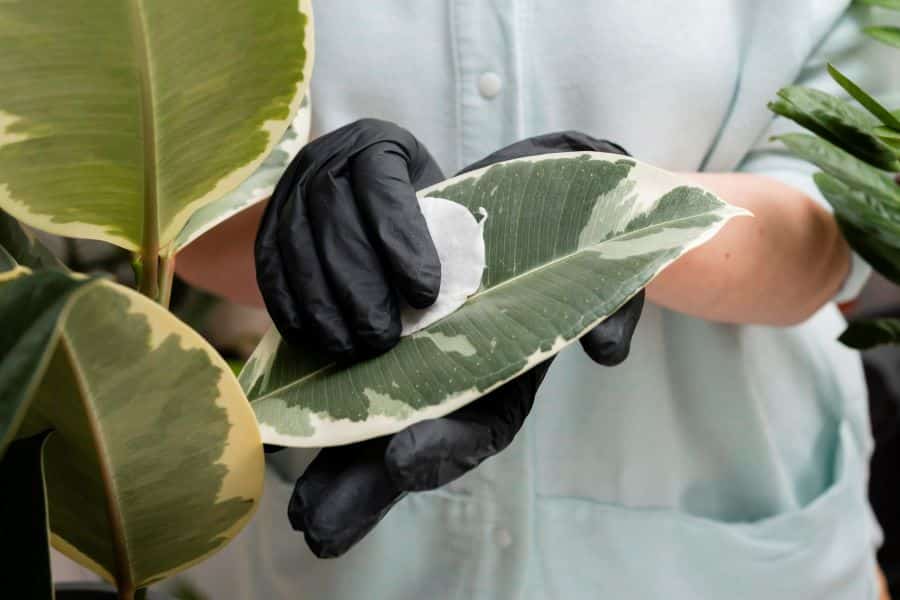Pests are a constant threat to our gardens and crops, and so often they demand action in defense of our plants. When it comes to pest control, there are many ways to skin the cat, but one increasingly popular approach is organic pest control.
But what does the expression “organic pest control” mean exactly? Is this concept better than traditional pest control methods? This article introduces readers to the idea of organic pest control from both sides – its advantages and disadvantages, environmental consequences, and how it is commonly implemented.
Understanding Organic Pest Control
Organic pest control is pest management without employing synthetic chemicals or genetically modified organisms. Instead, organic pest control maintains a balanced relationship between pests and useful animals in the environment. The basic principle of organic pest control is to increase species diversity and create an environment where natural enemies of beneficial insects, predators, and parasites can control pest populations.
Understanding the life cycle and habits of a pest is a key part of organic pest control. By studying their habits, farmers can implement targeted strategies to disrupt their reproduction or keep them from infesting crops this coming season. For instance, some pests are attracted to certain plants or specific environmental conditions. By rotating crops and using companion planting techniques, organic growers can confuse and discourage pests from invading a particular location for any length of time.
Another important aspect is the biological control of pests. This involves introducing natural predators or parasites that eat the pest insect. Ladybugs, lacewings, and parasitic wasps are used to control aphids, mites, and other harmful insects. In addition, the garden can be made more attractive to and support such beneficial organisms by planting nectar and pollen-producing flowers that supply food for them.
Moreover, organic pest control stresses the use of physical barriers and traps to block pests from getting to crops. This kind of approach involves installing netting or fencing around one’s farm field to keep out large pests like rabbits and deer, and a variety of sticky traps positioned to catch swarming groups of insects.
In addition, organic pest control promotes the use of natural pest repellents and deterrents. This may involve employing plant extracts, such as neem oil or garlic spray bottles, both of which have been found to deter some pests. Also, organic farmers often cultivate good agricultural practices to improve the quality of soil, implement irrigation strategies, etc.
However, it should be pointed out that organic pest control is not a single strategy. Depending on what type of pest it is, what is being grown, and how the overall ecosystem looks, the methods and strategies vary widely. Organic farmers and backyard gardeners must always monitor their fields and adapt their pest control strategies accordingly.
Consequently, organic pest control is a strategy for both preventing and solving agricultural damages in nature, with its strengths in fostering soil life. By prioritizing biodiversity and homeostasis, organic gardeners protect plants in particular but also the environment as a whole.
Common Organic Pest Control Methods
Organic pest control methods use a combination of natural methods to keep pests from becoming a problem. The following list contains some common ideas:
- Beneficial Insects: You can get rid of garden pets by introducing beneficial insects like ladybugs and burial flies, which eat other harmful insects as part of their diet.
- Neem Oil: Neem oil is pressed from neem tree seeds and is a natural pesticide and insecticide. It toughens the balance of a pest’s life cycle over time and keeps them from eating the plants.
- Companion Planting: Certain plants emit natural compounds that can repel pests or attract beneficial insects. Planting garlic, marigolds, or basil adjacent to other vulnerable crops makes it too unappealing for them to pass by.
- Garlic Spray: Garlic spray is a homemade remedy. It can be made by mashing some garlic cloves with water, passing the liquid through a fine cloth, and using it on plants.
- Chrysanthemum-Based Insecticides: Pyrethrins are natural insecticides derived from chrysanthemum flower heads. These substances can effectively control a wide variety of pests and they are safe for both people and beneficial insects.
- Essential Oils: Peppermint, rosemary, and thyme all have natural insect repellent properties. If you mix them with water, they can act as a spray to keep pests away from plants. This kind of item is highly effective against insects such as aphids or caterpillars.
- Crop Rotation: Certain pest species establish permanent residences where they can continuously feed and reproduce. When we till the land for a new crop, it significantly reduces the populations of many pests.
- Organic Pesticide Products: The market is awash with these types of products, and although they are formulated from natural compounds that target only given kinds of pests, every person generally has special requirements. That is why their main characteristic is minimal environmental pollution in conjunction with effective control over pests.
Benefits of Organic Pest Control
Now that we understand what it means, let’s take a closer look at some of the benefits of an organic approach to pest control:
Environmental Impact
One of the major advantages of organic pest control is that it has beneficial effects on the environment. Unlike conventional methods, organic pest control eliminates the use of harmful substances and the energy-consuming, soil-losing erosion processes often associated with them. By avoiding synthetic pesticides, organic practices contribute to healthier ecosystems and the preservation of beneficial insects.
-
Avoidance of harmful chemicals
Organic pest treatment is not just a matter of abstaining from the use of harmful chemicals. The focus of organic pest control is to use natural and sustainable methods for dealing with pests. For example, farmers and gardeners often employ biological control agents like ladybugs, nematodes, and predatory insects to control pest populations. These natural predators help maintain a balanced ecosystem where pests are kept in check by their enemies, using minimal chemical intervention.
-
Preservation of soil and water quality
In addition, the taste of our food can be enhanced by organic pest control techniques, along with improving crop quality. Without harmful chemicals, the produce grown this way is free of pesticide residues, and therefore healthier for eating. Moreover, the organic farming method not only promotes soil health values but also contributes to improving the quality of soil. Good earth means better-tasting fruits and vegetable gardens.
Healthier Ecosystems
By adopting organic pest control methods, agricultural practices can create balanced ecosystems that reduce pest damage while preserving the environment’s health and promoting long-term sustainability. Let’s take a closer look:
-
Preservation of beneficial insects
Organic pest control guarantees that pests are getting quite nearly destroyed and there are no collateral damages. That is important because keeping other species of animals alive, including other insects, is a process necessary to keep well-living ecosystems alive.
-
Prevention of harm to non-target species
For example, bees are indispensable to achieving the pollination needed for many plant species to reproduce. With the help of organic pest control, farmers and gardeners can at least help prevent the extinction of pollinators and, in so doing, contribute toward a healthy environment generally.
Health Considerations
With organic pest control, farmers not only safeguard the circumstances in which they live but also protect their health and the health of those who consume their vegetables. When a farmer opts for organic pest control, all kinds of harmful pesticides become a thing of the past. This is very important, as we should not forget that conventional pest control methods use poisons, which may also affect and damage human health, including children. By choosing organic pest control, farmers can offer the consumer not only environmental and health protection, but also an item of top quality and good flavor.
Drawbacks of the Organic Approach to Pest Control
Though numerous benefits are brought by organic pest control methods, it is important to point out their limitations:
-
Effectiveness
One of the primary drawbacks is that the effectiveness of organic pest control may be limited when compared to conventional methods. Pests are not eliminated through organic pest control, often necessitating more frequent applications.
-
Limited Spectrum
Organic pest control methods often have a narrower focus when it comes to targeting specific pests. Unlike some synthetic pesticides that can be broad-spectrum and effective against a wide range of pests, organic alternatives may be more pest-specific. This means that you may need to identify the exact pest-causing problems in your garden or field to choose the appropriate organic control method.
-
Cost
Another consideration is the cost associated with organic pest control. Depending on the scale and severity of the pest issue, organic methods may require more resources and labor, potentially making them a costlier option.
-
Weather-Dependent
Lastly, organic pest control products can be weather-dependent. Their effectiveness may diminish when exposed to rain or harsh weather conditions, necessitating re-application in such cases.
Still, it’s essential to have expert advice when you’re planning on using any kind of pest control. Our team of Las Vegas landscapers is committed to delivering outstanding services. We specialize in plant pest treatment to ensure the health of your garden. Additionally, we can help improve the quality of soil, making your landscape thrive. Don’t settle for less; choose Las Vegas landscapers who truly care about your outdoor space!
Benefits of Regular Pest Control
Conversely, regular pest control has multiple benefits for one’s home as well. Although it is not better for the environment, it will lead to a quick and effective result. Regular pest control has one main job, which is to kill pests, just like organic pest control does; however, regular pest control does it quicker in the short term. If there is a pest problem going on, regular pest control will get rid of the problem almost immediately and will not harm any humans in the process. Even though chemicals are used, humans are safe and can return to having an aesthetically beautiful yard after a short period of time.
Furthermore, regular pest control has another main benefit. Saving money is the second main benefit of regular pest control. Due to organic pest control being extremely expensive, regular pest control is an important benefit. Everyone wants to save money because each individual has their own chosen hobbies and plans that they want to spend money on instead. Protecting furniture and protecting one’s investment is also possible with regular pest control because it works quickly and will not lead to any damage that would have led to more money being spent. Ultimately, a dream Las Vegas landscaped yard is possible if one uses regular pest control for their home.
Disadvantages of Regular Pest Control
Primarily, regular pest control has many disadvantages. The primary disadvantage is the lack of safety for pets and other organisms. Pets are something that people love and care deeply about. When pets get into chemicals, they are likely to suffer a lot. Furthermore, other organisms, such as other animals, cannot be touched by pest control before it is dry because if they do, the chemicals will likely lead to harmful health effects for them. Overall, the first disadvantage of main importance due to regular pest control is the lack of safety for the health of pets and other organisms in the environment, especially in one’s Las Vegas landscaped yard.
To continue, regular pest control has one other main disadvantage. This disadvantage is the problems that it causes in the environment. Everyone knows that taking care of the world is necessary. To maintain a fantastic, beautiful, and landscaped yard, having good soil is indispensable. The chemicals that are involved in regular pest control may damage the soil overall and lead to a less wonderful yard. Hence, the second important disadvantage of regular pest control is that it harms the environment, especially one’s yard.
Regular Pest Control Vs Organic Pest Control
Throughout this guide, the benefits and disadvantages of both regular pest control and organic pest control have been thoroughly discussed. Regular pest control has the benefits of working quickly and saving money, while organic pest control has the benefits of working in the long run and being better for the environment. Furthermore, regular pest control has the disadvantage of causing harm to the environment and not being safe for pets, while organic pest control has the disadvantage of taking too long to work and costing too much money.
A Valuable Practice in Agriculture!
Many benefits accrue from organic pest control. This is good for both the environment and our health. By keeping away from poisons, protecting helpful bugs, and maintaining a full web of life, organic pest control demonstrates that gardening can be sustainable when done right.
If you are looking for safer, more environmentally friendly ways to go about organic pest management and control, then adopting more natural methods is well worthwhile. Through ecological land management, together with the natural world rather than against it, organic pest control provides a comprehensive view of how to protect nature.
















